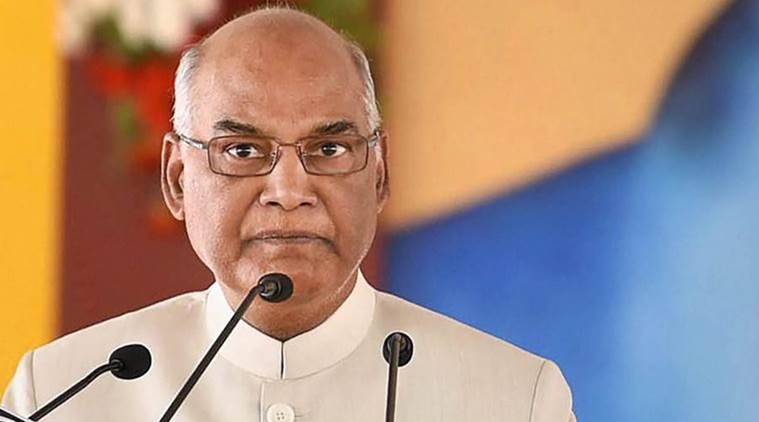Fighting COVID-19: President gives assent to promulgation of Ordinance to amend the Epidemic Diseases Act
President Ram Nath Kovind has approved to promulgate The Epidemic Diseases (Amendment) Ordinance, 2020 which provides stricter punishments for attacks against health workers even as the country battles the coronavirus outbreak.

New Delhi: President Ram Nath Kovind has approved to promulgate The Epidemic Diseases (Amendment) Ordinance, 2020 which provides stricter punishments for attacks against health workers even as the country battles the coronavirus outbreak.
The Union Cabinet in its meeting held on Wednesday has approved the promulgation of the Ordinance to amend the Epidemic Diseases Act, 1897 to "protect healthcare service personnel and property including their living/working premises against violence during epidemics."
Also Read | With 13 fresh cases, India coronavirus tally reached180
The Ordinance provides for making such acts of violence cognizable and non-bailable offences and for compensation for injury to healthcare service personnel or for causing damage or loss to the property in which healthcare service personnel may have a direct interest in relation to the epidemic, according to Ministry of Health and Family Welfare.
"The amendment makes acts of violence cognizable and non-bailable offences. Commission or abetment of such acts of violence shall be punished with imprisonment for a term of three months to five years, and with fine of Rs.50,000/- to Rs.2,00,000/-," the Ministry said in a release on Wednesday.
Also Read | President Kovind hails COVID-19 warriors for working dedicatedly amid pandemic
"In case of causing grievous hurt, imprisonment shall be for a term six months to seven years and with fine of Rs.1,00,000/- to Rs.5,00,000/-. In addition, the offender shall also be liable to pay compensation to the victim and twice the fair market value for damage of property."
Offences shall be investigated by an officer of the rank of Inspector within a period of 30 days, and trial has to be completed in one year, unless "extended by the court for reasons to be recorded in writing." (ANI)
 Dynamite News
Dynamite News 